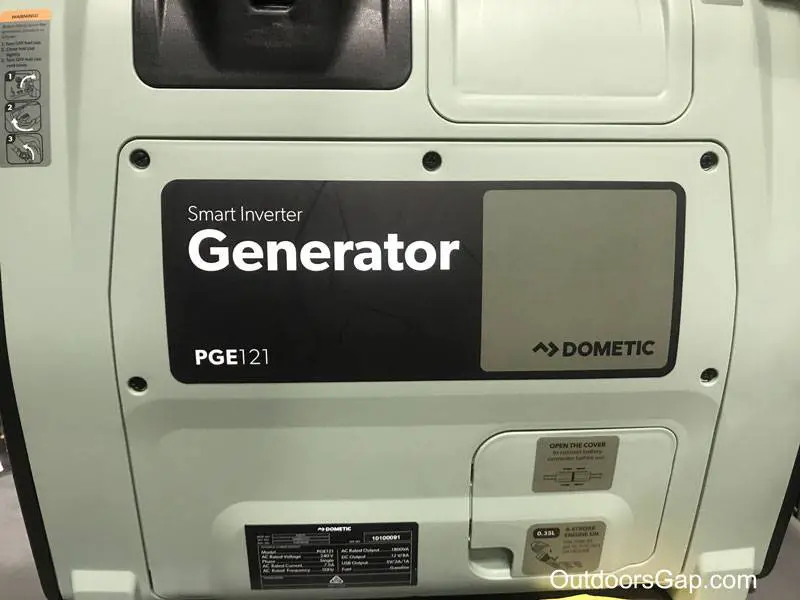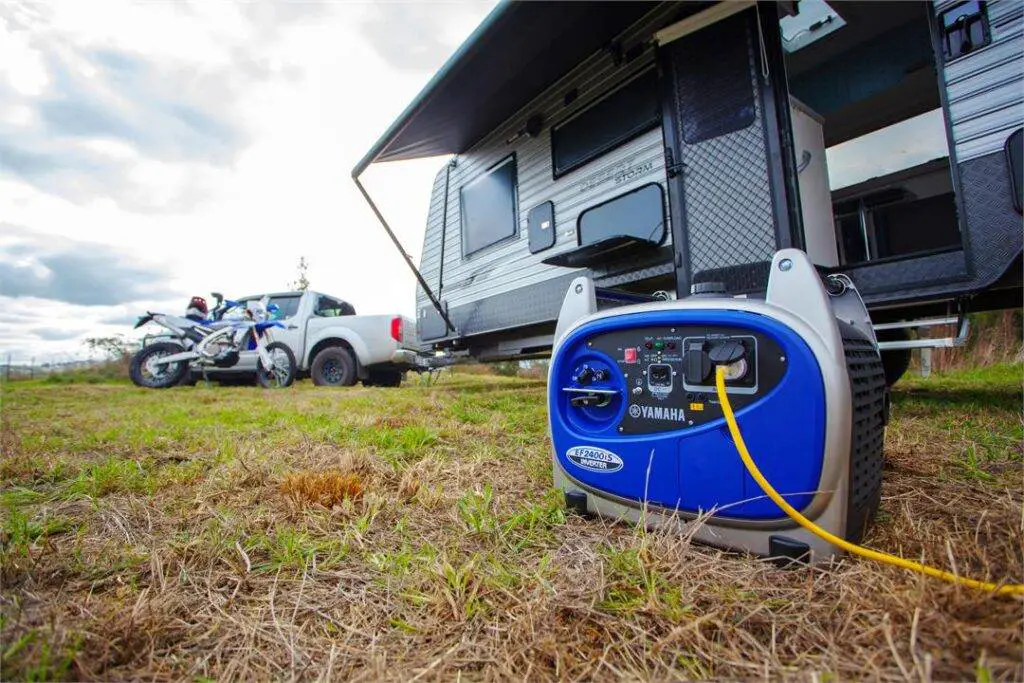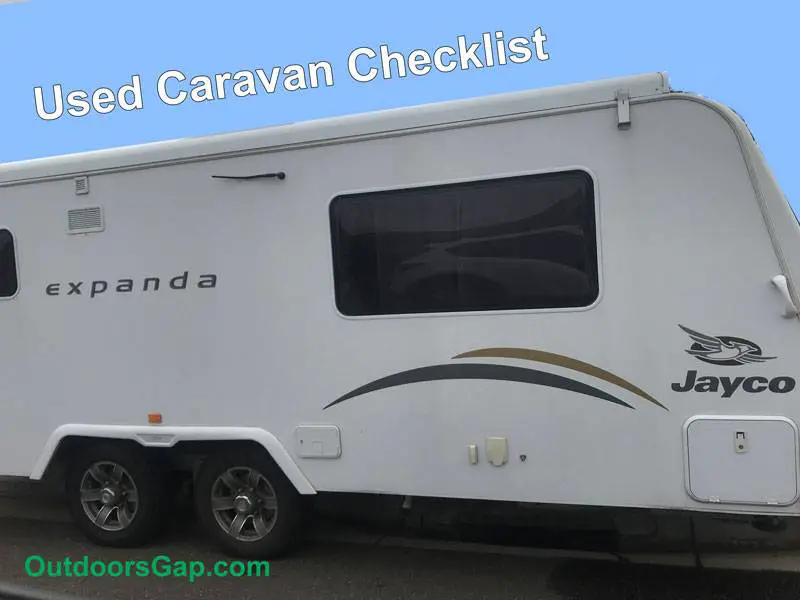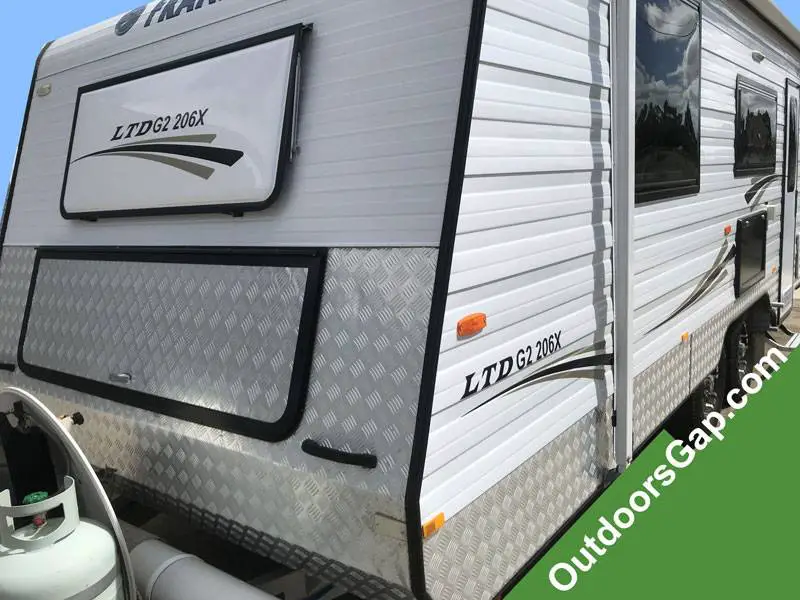
When you’re out camping in a tent, or in a caravan, a good generator is essential for comfort and convenience. However, sometimes generators can get ridiculously loud and won’t let you sit and rest, let alone sleep in peace. If you are in a situation like this, you’ve probably been thinking about how to make your camping generator quiet.
You don’t need to worry about losing sleep over a loud pestering generator anymore because we have six great tips that can make your camping generator much quieter.
Without wasting any more time, let us get into finding the real solution to this noisy problem.
1. Purchase An Inverter Generator That Fits Your Needs
On camping trips, different groups of people have different needs, which is why the same generator will not work well for everyone. Having an effecient inverter generator that fits your power needs is crucial for many reasons. The first reason is so it can power all your appliances properly, and secondly, it runs smoothly and doesn’t get loud.
For a list of the quietest generators in Australia and decibels listed, click on – What Is The Quietest Generator For Camping In Australia?
If you are going to be just charging devices and camping lights in a tent, then a smaller generator will be just fine for you. Smaller generators output less power, and they are quieter. So, if you can get the job done with a smaller one, then there’s no need for you to get a more powerful one.
On the contrary, if you are going to be using high-power-consuming appliances such as air conditioners, refrigerators, and ovens in a RV or caravan, then you should definitely opt for a more powerful inverter generator. These appliances will require a high wattage power output.
Larger generators are generally noisier, but if you’re willing to spend more money, you can get ones that are both quiet and powerful.
Another useful article is – What Size Generator Do I Need for A Caravan In Australia?
2. Use Sound Deflectors
The term ‘sound deflector’ may seem very complex to you initially, but it’s one of the simplest methods of how to quieten a camping generator guide. You need plywood and planks of non-flammable material to make your sound deflectors. Drywall is a great option for this job.
Take plywood sheets of these materials, which are 3 x 4 feet, and lean them against the generator at an angle. You want to block the noise coming from all sides of the generator. And you just can’t use plywood too close to the exhaust side because the heat coming from there could cause the sheet to catch fire.
Above, we have described how you could make a sound deflector using common materials around you, but if you want, you can also purchase a proper sound deflector. It will do a much better job at making the generator soundless.
3. Move Your Generator Further Away
Moving your generator further away might not be a very clever solution for reducing the amount of sound produced by the generator. However, it can effectively reduce the noise going into your ears.
Adjust the position of the generator, and see what works best for you. You should have the generator near your caravan or tent to keep your AC on in the Australian heat, but try to keep it as far as possible so that the sound isn’t deafening.
A tip that you should definitely follow is that you should face the exhaust side of the generator away from your camping site.
Place The Generator on A Soft Surface
If you have been around generators enough, you should know a lot of the noise is a buzzing and vibrating sound. This is because when generators are operating, they vibrate a lot, and as the components come into contact with each other and the ground, they create this sound.
When you place the camping generator on a hard surface like concrete, the sound will just get louder. However, when placed on a softer surface like dirt and grass, the sound will become a bit more muffled as the soft ground will dampen it.
You can also take the extra step and buy a rubber mat or an anti-vibration mat. Which is a mat with a soft surface that can help dampen the buzzing noise from the generator. Regular campers may want to get this mat for the times when they don’t have soft surfaces around their campsite.
Build An Acoustic Enclosure
Another thing very similar to sound deflectors that you can use to lower the generator noise is an acoustic enclosure. As you can tell from its name, an acoustic enclosure, which is also known as a baffle box, is an enclosed box.
Sound waves emitted from the generator are contained in this box, and there is a significant drop in the decibels of sound at the campsite.
While sound deflectors do a great job at reducing the sound, having an acoustic enclosure is much more convenient than having to do a whole setup with plywood and drywall every time you go camping.
If you want, you can also construct your very own acoustic enclosure using wooden planks, L-brackets, foam sealer, and a quiet board.
Service The Generator
Like appliances, generators also require regular servicing so they can function properly for a long time. If left without servicing over long periods, numerous parts of the generator can get worn out, or debris might collect. This will cause a substantial increase in noise levels.
If you can’t do it on your own, then get a professional to take a look at your generator and service it from time to time.
Frequently Asked Questions
1. Why are Camping Generators so noisy?
In portable generators, electrical energy is created by an engine using a fuel that can make a lot of noise, even in premium models sometimes.
2. What are the sound decibels of a Camping Generator?
The answer to this question can vary greatly depending on the model, but on average, it is anywhere from 60 to 90 decibels. But louder generators can cross the 100db mark.
3. Can you operate a generator in the rain?
Using a generator in the rain or snow can be risky because it increases the risk of electrocution significantly. Place a tarp or cover over it. You should also ensure that the generator is properly grounded.
Conclusion
A loud camping generator can very much ruin your trip because it can spoil your entire night’s sleep. However, now that you have read our guide on how to keep your camping generator quiet, you should be free from this problem completely. If you follow all the tips in our article, then prepare yourself for a good time camping!
Author – Ted Jones




